Vet's organization rescues American citizens in Sudan
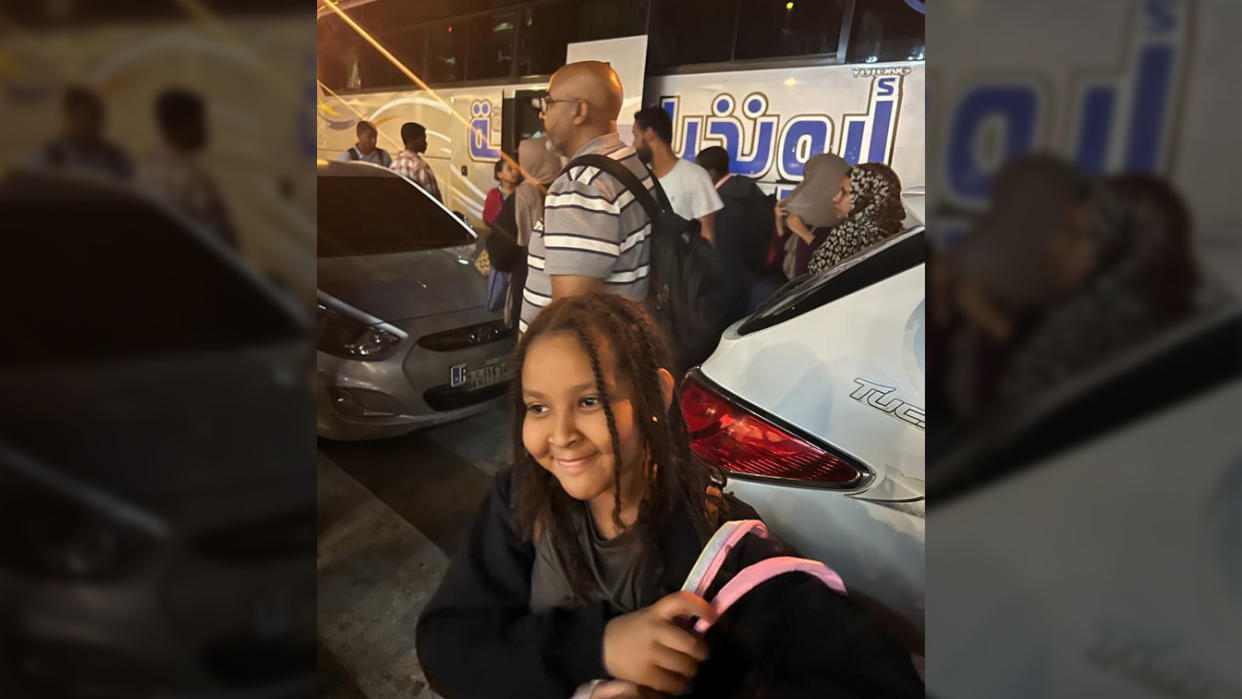
When Bryan Stern launched a humanitarian effort to rescue Americans and other vulnerable people during the 2021 turmoil in Afghanistan, he didn’t expect he’d still be extracting people during a conflict two years later — only this time in Sudan.
As the East African nation falls into civil warfare, Stern’s representatives confirmed that his nonprofit, Project Dynamo, rescued around 90 “Americans, [U.S.] allies and their families” over the weekend. The organization successfully landed a charter aircraft in Cairo with evacuees from Sudan, it said, arriving at Cairo International Airport at 6 a.m. on Monday.
“The large-scale rescue operation, dubbed: RHINO RIVER, is focused on evacuating Americans and residents of other NATO and allied countries from the Sudan war zone to safety,” Stern’s press team said in an email. “This is the second time Project DYNAMO [was] the first to land a charter plane in a conflict zone to rescue Americans, the first was in Afghanistan.”
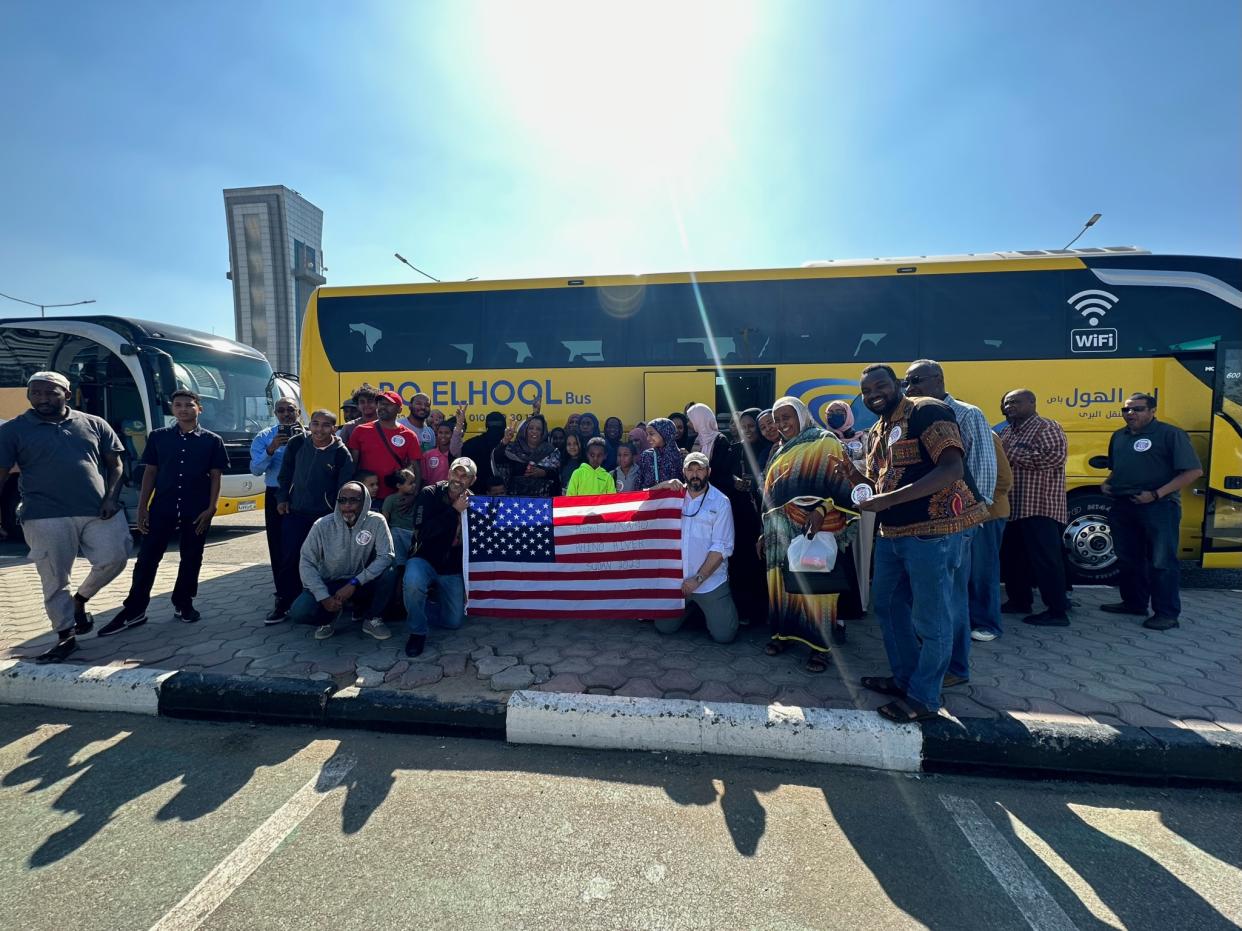
Mohamed Mahgoub’s wife, son and two daughters were visiting extended family in Sudan for about a year. After the school year, they were to return to the U.S. and rejoin him in San Leandro, Calif. He even had a flight on May 29 booked for them. But then the conflict erupted.
“There was no way for me to fly in so I [could] live or die with my family,” Mahgoub said. “There [was] no way for me to get them out of there. I saw these things going on, and I saw other nations taking care of their citizens.”
He added that he could hear bombs and bullets firing when talking to his family on the phone. Eventually, Mahgoub said a friend told him about Project Dynamo, so he filled out an application, and he said the organization responded within three or four minutes.
In the Rhino River operation, Stern and his crew were able to rescue Mahgoub's family.
“I’m happy for my kids to be safe, but at the same time, I feel like I have a responsibility to Project Dynamo,” Mahgoub said. “Because if that's what they are doing, everyone needs to jump in and help. It's like we cannot just leave them alone trying to save the entire world by themselves. So I feel gratitude, I really appreciate what they did for me. I owe them, I owe them my life.”
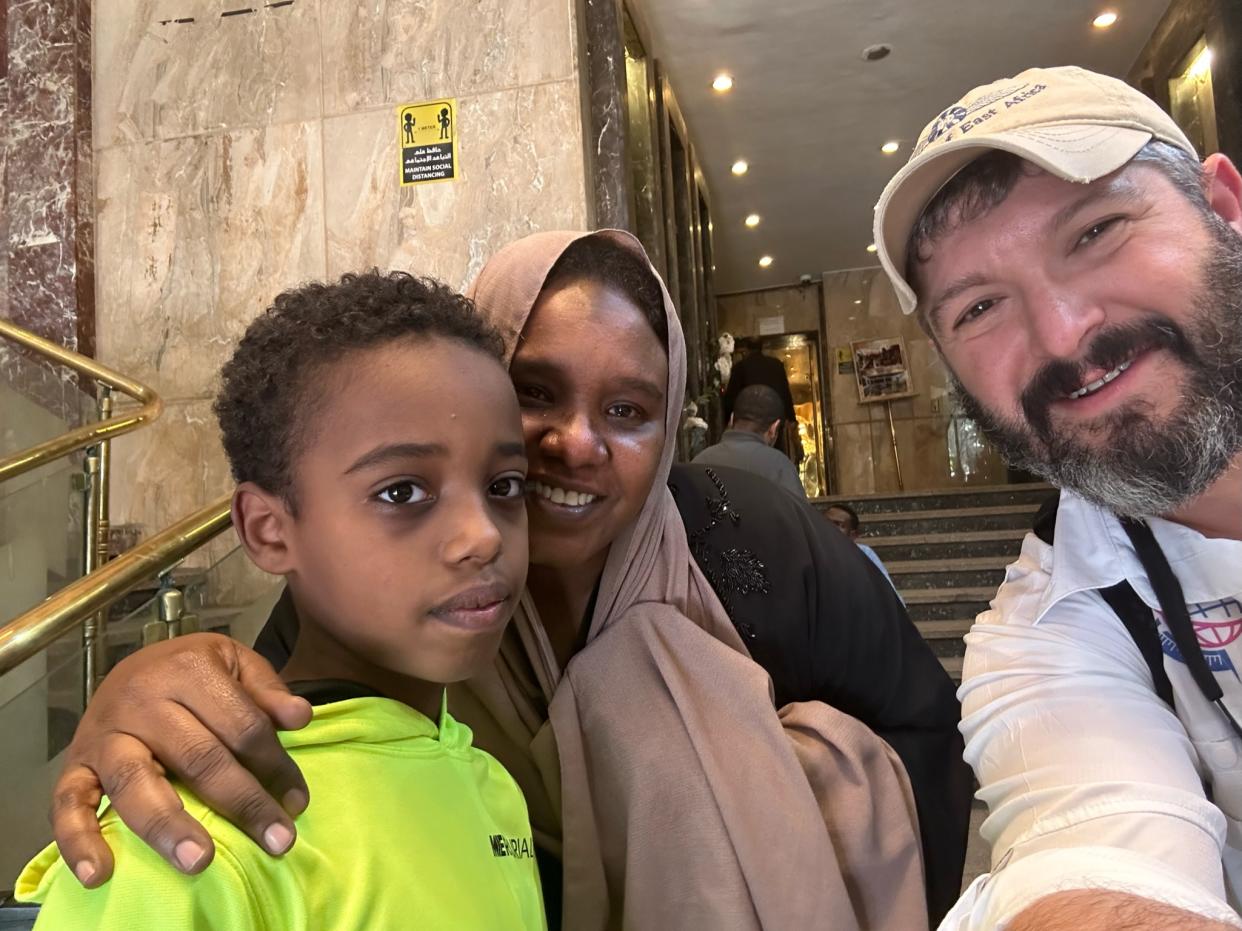
Stern founded Project Dynamo, which describes itself as a veteran-led, donor-funded, international rescue organization, in 2021 in Tampa. When the U.S. withdrawal from Afghanistan caused mayhem in Kabul, the capital city, his group evacuated Americans and American allies.
Now Stern’s organization is helping people in Sudan, where a civil war has recently erupted between the army and a paramilitary group called the Rapid Support Forces. The military factions, which are loyal to rival generals, are battling in the capital, Khartoum, and across the country. The death toll has exceeded more than 520, according to a recent report, with nearly 5,000 injured.
“Our vehicles are on the street pulling Americans as we speak, as I'm talking to you right now,” Stern told Yahoo News in an interview via Zoom on April 26.
Last week provided a critical opportunity for Project Dynamo, as both sides in Sudan agreed to a 72-hour ceasefire that was extended for an extra 72 hours through Sunday, although the Associated Press reported that “gunfire and heavy artillery fire” persisted over the weekend.
“The ceasefire is only as good as the people who follow it, which is most, but not all,” Stern said. “A ceasefire is kind of like a speed limit. Most people follow it. Some people, a lot of people, break it every now and then. Then there are some people that look at that sign, and it's like, [they] don't care.”
When violent conflict breaks out in a country, the American government will often evacuate its embassy, but many other Americans living there may be left to fend for themselves.
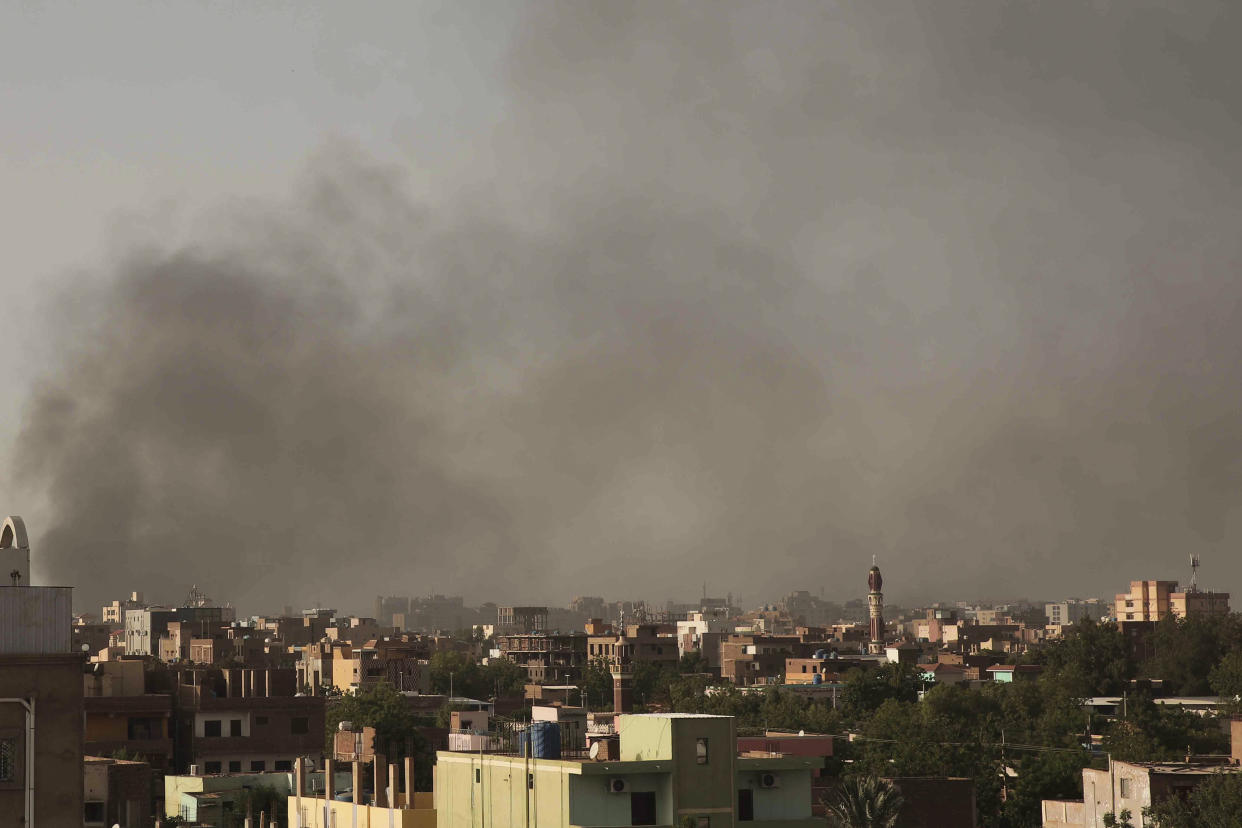
That’s when private organizations like Project Dynamo step in. The group is funded by donations and is trying to execute exfiltration missions for the hundreds of people in Sudan who it says have reached out to it.
Withdrawal from Sudan
On April 15, conflict erupted between the Sudanese Armed Forces, led by Gen. Abdel Fattah al-Burhan, and the Rapid Support Forces, led by Gen. Mohamed Hamdan Dagalo. The U.S. sent special operations troops into Khartoum on April 22 to airlift embassy staffers and government personnel.
The White House said on April 24 that the U.S. would still try to help thousands of Americans left behind in Sudan who are seeking to escape the fighting.
In a press briefing last week, Jake Sullivan, President Biden’s national security adviser, defended the decision for U.S. forces and personnel to depart Sudan, saying the U.S. was now remotely assisting Americans trying to flee the country by road.
However, following criticism about leaving Americans behind, the U.S. evacuated three groups of American citizens, as well as their immediate family members and “nationals from allied and partner countries,” on April 29, April 30 and May 1, according to State Department principal deputy spokesperson Vedant Patel.
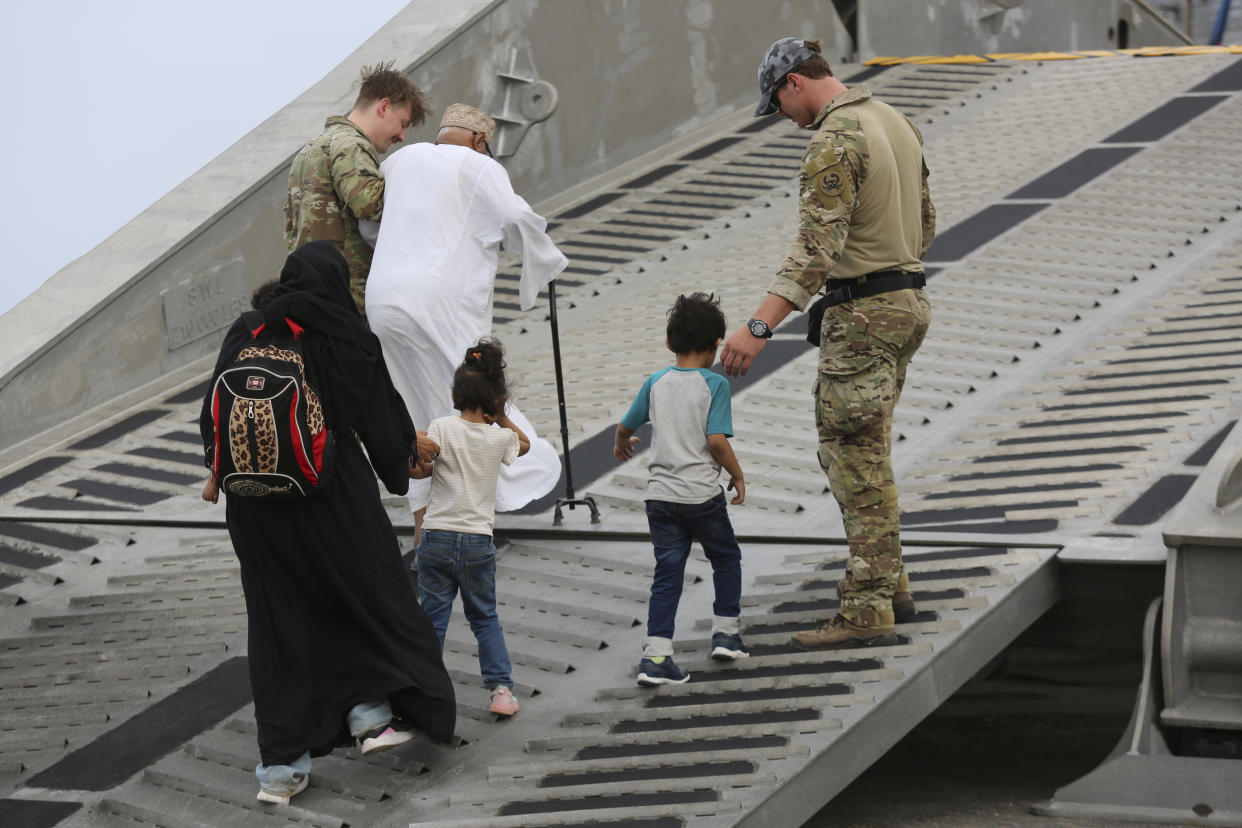
The convoys transported more than 700 people to Port Sudan, a Sudanese city on the Red Sea, where they could be removed from the conflict. Tens of thousands of people in Sudan have arrived at border crossings into Chad and Egypt, and the U.N. projects that the number will eventually reach 800,000.
In response to a request for comment from Yahoo News before the weekend rescues, the State Department forwarded a previous briefing from Patel.
“We remain dedicated to assisting U.S. citizens in Sudan. As Secretary [Antony] Blinken said, we are actively helping U.S. citizens who seek to depart Sudan to move overland to a location where they can more easily exit the country,” Patel said in a prepared statement at the briefing.
He encouraged U.S. citizens in Sudan to complete the crisis intake form on the State Department website so department officials can contact them.
Patel added that fewer than 5,000 U.S. citizens have requested additional information from the State Department, and of those “only a fraction have actively sought our assistance to depart Sudan.”
Responding to a question from Yahoo News about thoughts on Project Dynamo's efforts, a department spokesperson reiterated Patel’s comments, adding, “We have a team of consular officers in Washington, D.C., who are working around the clock to communicate directly with U.S. citizens.”
Other missions Project Dynamo assisted in
Stern, who lives in Tampa, grew up in New York City. He initially enlisted in the Army and then became a naval officer, becoming a lieutenant commander and serving 25 years in special operations.
He also considered becoming a lawyer or joining the FBI. But now his full-time job is extracting people from conflict zones.
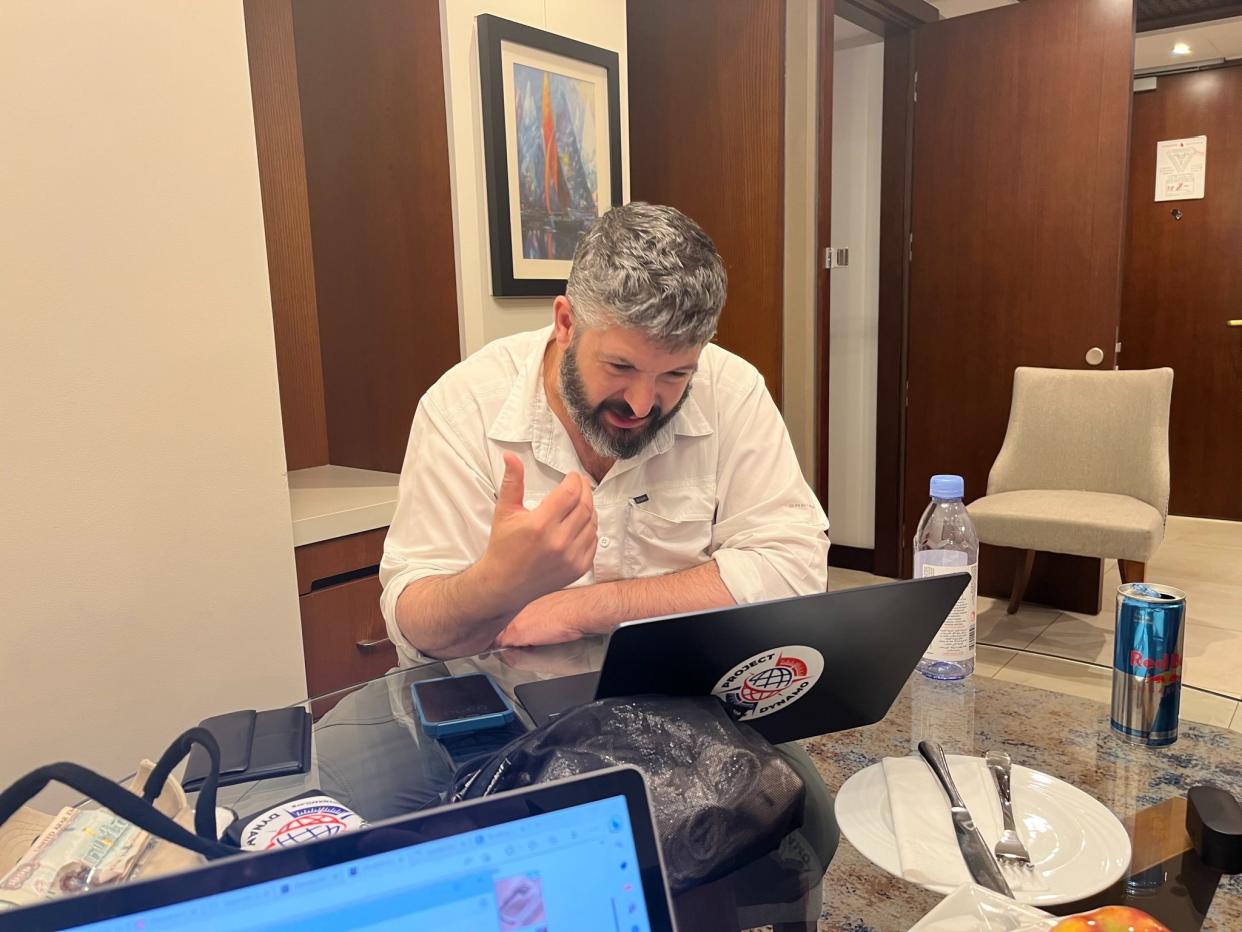
Project Dynamo now has thousands of donors and an average donation size of $217, he said, and is looking for corporate sponsors and major companies serve as donors. Right now it has about 17 volunteers, a number that ebbs and flows based on availability.
When rescuing people, the group typically charters an aircraft. For the first rescue in Kyiv on day one of the Russia-Ukraine war, Stern said he drove people to safety.
He originally expected Project Dynamo to be a three-month-long operation to help in Afghanistan.
“When we started, it was really about honoring our promise to our partners that had fought with us for 20 years that we left behind,” Stern said. “That’s how it started: helping Afghans, Afghan commandos, Afghan judges, women’s rights folks, translators, those kinds of people that have helped us out over America’s longest war. Then it turned into ‘Holy cow, there’s a whole bunch of Americans left behind.’”
Then Stern found himself helping out in Ukraine.
In January 2022, as the Russian invasion began to look more likely, “we had a big donor that said ... ‘I actually have an office in Ukraine. And I have a lot of Ukrainian friends. And I actually used to live in Ukraine,’ this donor told me. ‘Is Dynamo going to Ukraine?’”
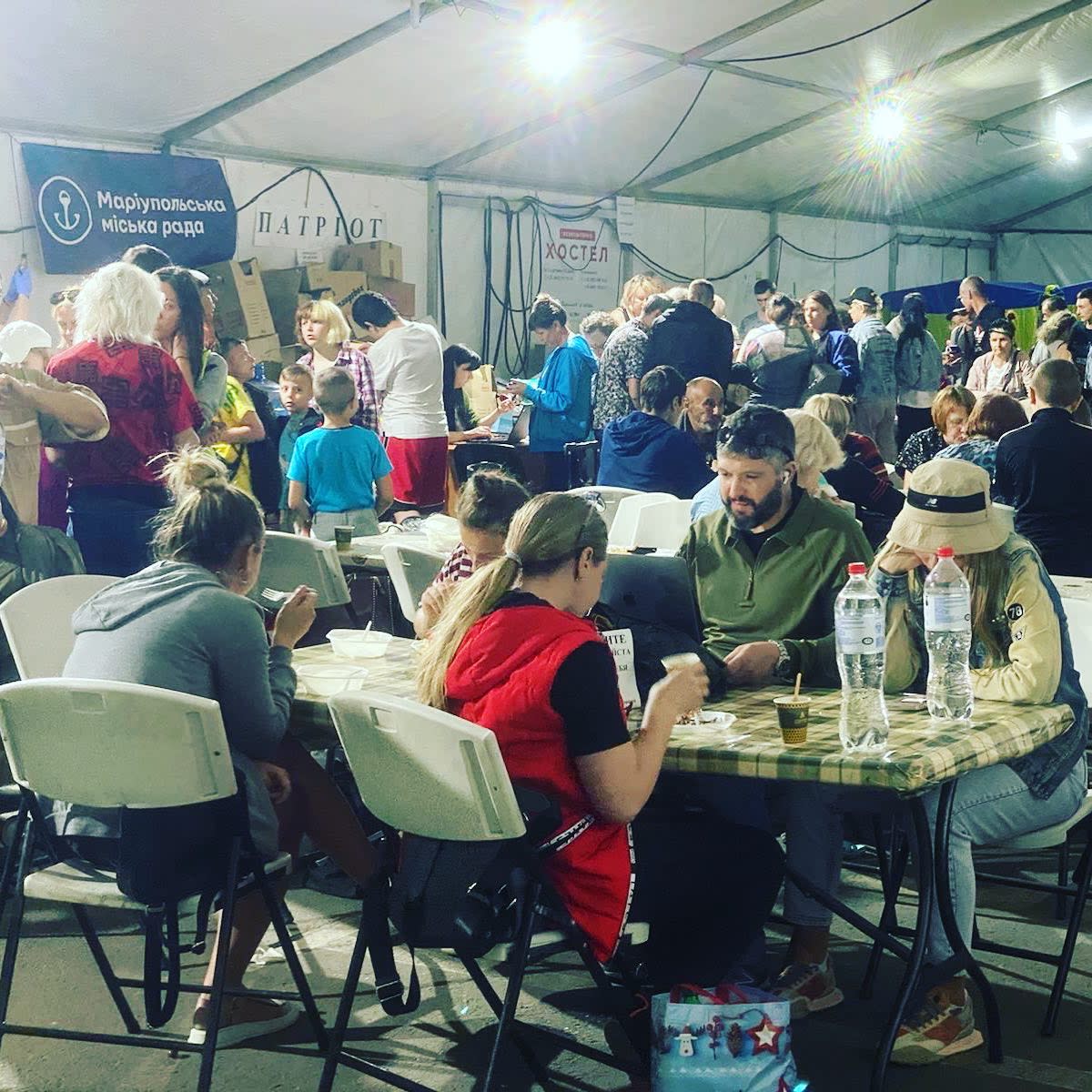
In Ukraine, Stern said the group did the first rescue of Americans in the country. He said missiles dropped around 5:30 a.m. on Feb. 24, 2022, and Project Dynamo left Kyiv within an hour with a bus packed with 20 people. The organization is still helping out with withdrawals in Ukraine and Afghanistan, having carried out operations in those countries this week alone.
Project Dynamo has also helped out much closer to home, heading to Fort Myers, Fla., in the aftermath of Hurricane Ian.
“We were in the water, boats in the water conducting operations before the Coast Guard, before Sanibel Fire Department, before the Florida State Police, before Florida Fish & Wild,” Stern said.
Serving the evacuees
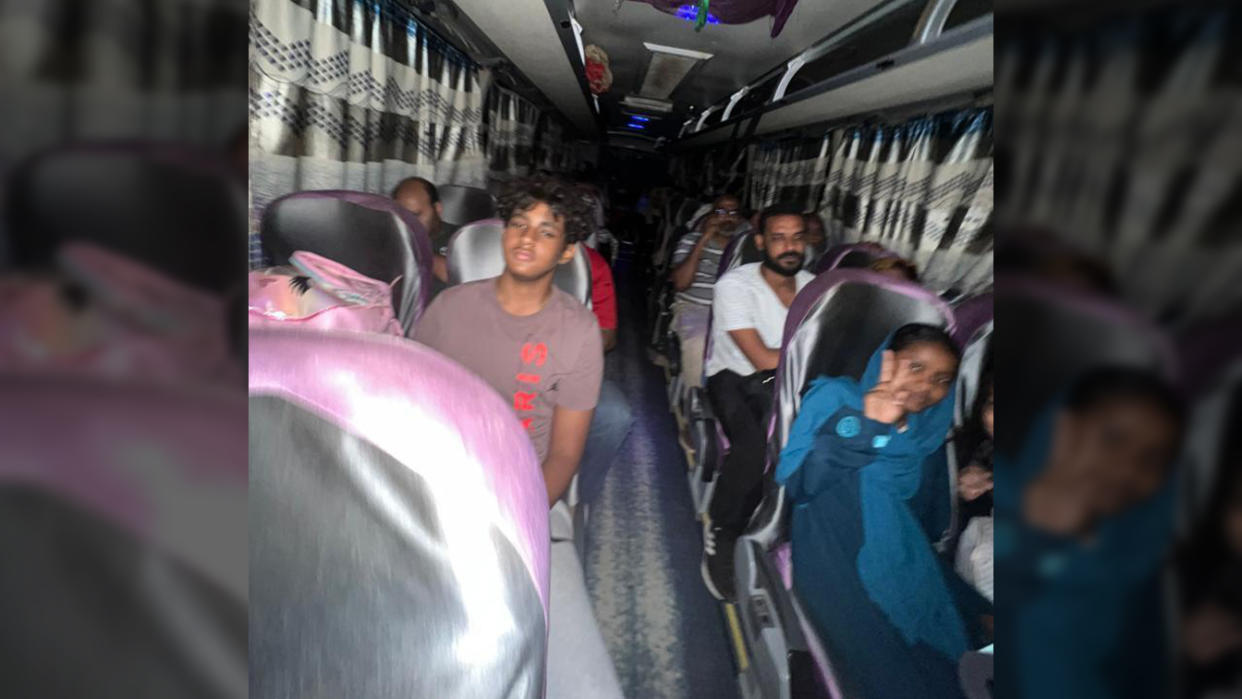
By nature, Project Dynamo volunteers are put into dangerous and daring situations. Stern said they are not armed and often can’t use every mode of transportation, depending on the nation and conflict.
“We’ve had a few sources that have been killed, and we’ve had a few people detained or arrested and interrogated over time, as recently as [April 25],” he said. “The people I serve are the [evacuees]. I don’t have an ambassador to give me approval. I don’t have a colonel to judge or to say that’s too risky.”
